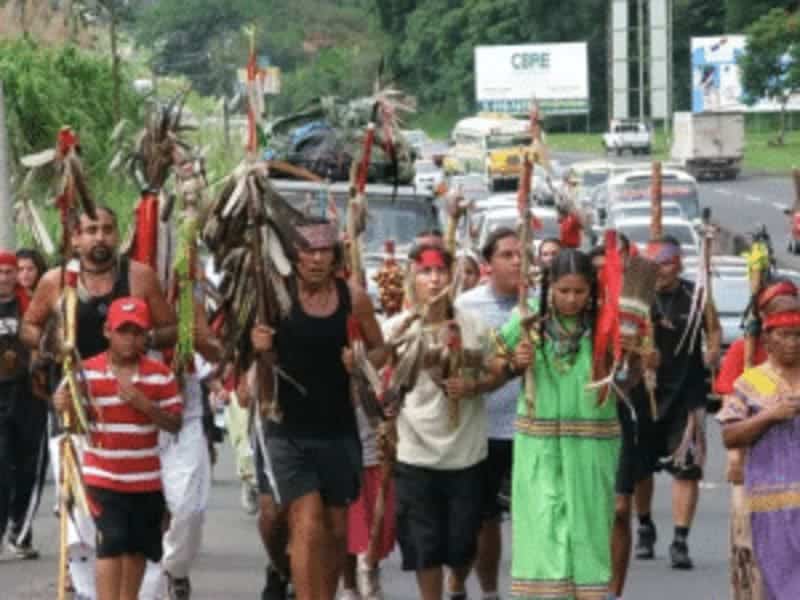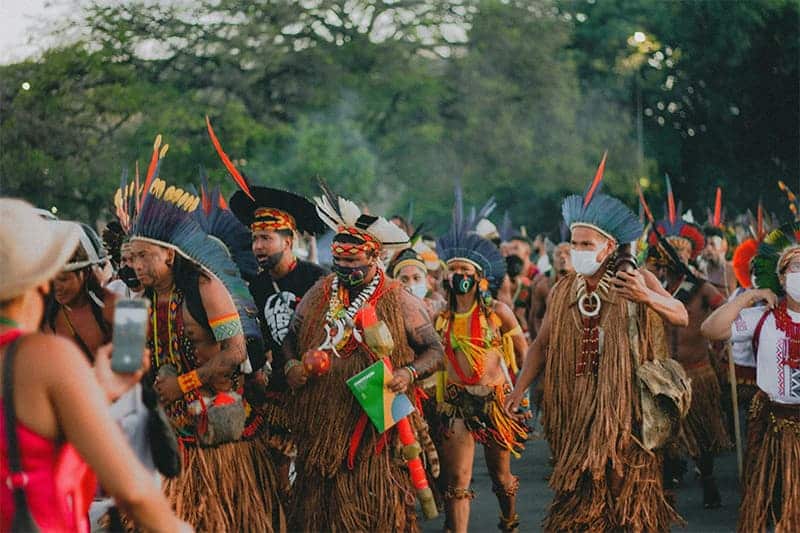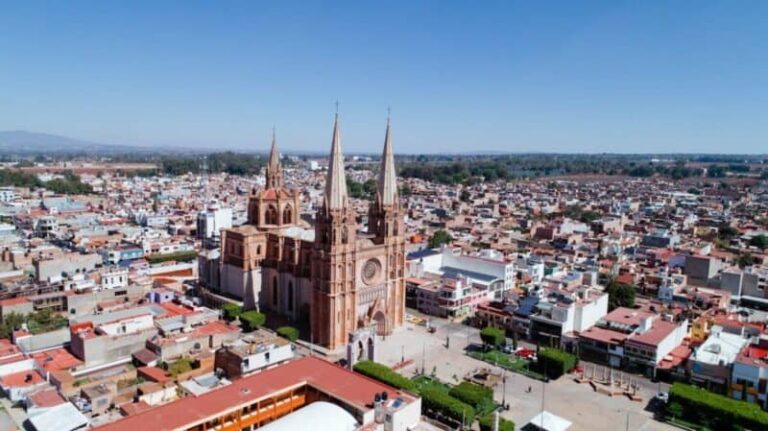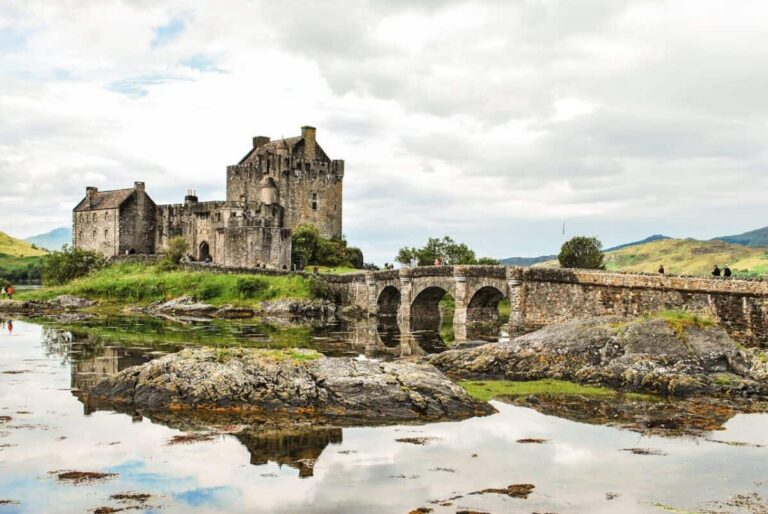Spirit Run (2020): Racing to Reconnect to Peoples Roots
People run to exercise, to accomplish a personal goal, to escape from a dangerous person or an undesirable situation, to bond with or challenge other people, and more. Running provides many personal physical and emotional benefits and opportunities to build friendships and solidarity among runners.
When Noé Álvarez learned about an annually-held Native American and First Nations-led race, he joined it for the reasons above and an additional one: to reconnect to cultural roots across North America. In his memoir Spirit Run (2020), Álvarez describes what events brought him to the race, what depths and heights he reached during it, and what he learned from his journey across Canada, the United States, Mexico, and beyond.
Revitalizing the Spirit By Running
In his memoir, Noé Álvarez describes growing up as a Mexican immigrant to the United States. Although his family emigrated from Mexico to Yakima, Washington, in search of a better life, they felt trapped in their demoralizing, backbreaking jobs in an apple-picking plant.
Both Álvarez and his parents wanted him to escape a life of thankless manual labor. Although he got a chance to do so thanks to a full-ride scholarship to Whitman University, Álvarez had a difficult time living up to his and his parents’ high expectations and combatting negative stereotypes about Latinos, so he dropped out during his freshman year.
While at college, Álvarez learned about the Peace and Dignity Journeys. These journeys were international, intertribal ceremonial races where thousands of indigenous North and South Americans run across the western side of both continents to renew cultural connections between the Americas.
Álvarez felt that he finally found a way to escape a life of manual labor, connect with his indigenous Purépecha roots, and acknowledge his parents’ journey across North America. He flew north to British Columbia, Canada, to join a group of Native American and First Nations participants and race alongside them from Canada south to Colombia.
Álvarez shares the stories of Native runners he met and describes the struggles and triumphs they all had while racing. They experienced thirst and exhaustion, fights within their teams, and dangerous encounters with people and animals that didn’t appreciate why they were racing; they also bonded with other Native people, shared cultural knowledge and personal experiences, and gained deeper appreciations for the land they all called home.
Why Should You Read Spirit Run?
Álvarez crafts a compelling memoir that connects his personal story as a Mexican immigrant to the United States with the stories of the various First Nations people, Native Americans, and Native Mexicans he meets. By doing so, he shows common bonds among a wide swathe of North Americans and an interesting cross-section of the lives, opinions, hopes, and fears of indigenous peoples across the continent.
Álvarez effectively portrays the beauty of western North America’s forests, deserts, mountains, and beaches and the diversity of different First Nations, Native American, and Native Mexican communities and cultures. He also highlights the threats that oil extraction, deforestation, substance abuse, and worker exploitation pose to the environment and people of North America.
By writing short, briskly paced chapters, Álvarez mimics the excitement of running a 6,000-mile marathon. He shows the highs and lows of running, from feeling physical thrills, building friendships, and having new experiences to suffering from exhaustion, dealing with infighting, and trying to avoid looming dangers from hostile humans and animals.
Throughout his memoir, Álvarez shows how his positive and negative experiences during the race changed his life. As he overcomes personal and physical challenges and understands and appreciates other people’s experiences, he grows personally and develops a new purpose that keeps him moving forward.
Final Thoughts
Spirit Run is a great read not only for runners and Native people from across North and South America but also for anyone who strives to be a part of something greater than themselves. Noé Álvarez celebrates the deep cultural connections Native peoples across the Americas share, makes the experiences he and other racers had vividly real, and shows how those experiences changed all their lives.
Álvarez’s memoir is a fascinating adventure that’s worth taking. Open the book up and begin a journey of 6,000 miles with a single step.
If you liked this article, check out these other great articles on our site:
- 3 Classic Novels That Are Essential Reads
- Controversial 2nd Book Ban Passes in Missouri: Is America’s Future in Jeopardy?
- The Upper Tanana Dene (2023): An Alaskan Native People Shine Like the Northern Lights
For More Great Content
Total Apex is an all-encompassing content producer. We provide heavily detailed articles every day on entertainment, gaming, sports, and so much more! For more exemplary gaming and entertainment content, read our daily content on these sites: Total Apex Gaming and Total Apex Entertainment.







